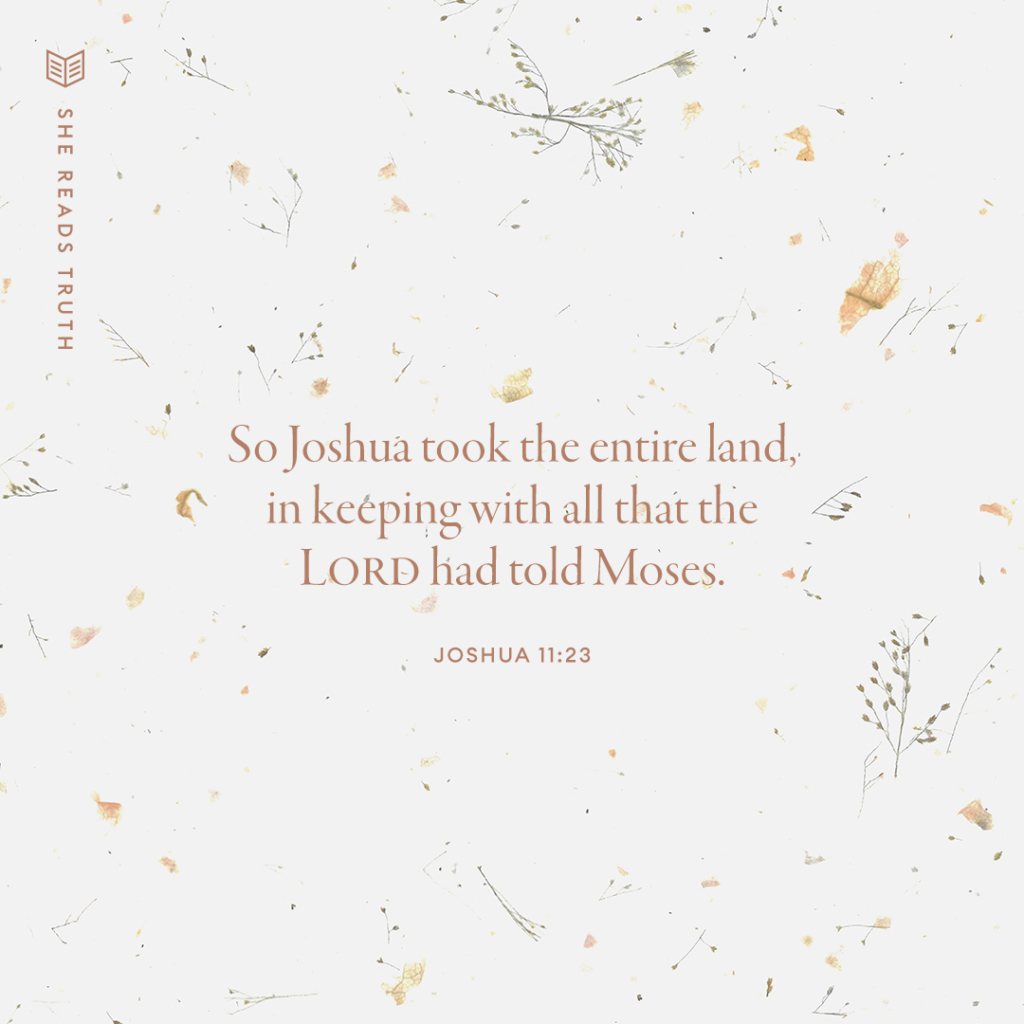What do we do with the violence in the Old Testament?
This is a question I hear often from members of our church, and for good reason. Whenever we read stories like the one in Joshua 11, it can be difficult for us to reconcile these accounts with what we understand about the person of Jesus. For this reason, for thousands of years, many people have wondered if the God of the Old Testament and the New Testament are, in fact, somehow different.
Theologian N.T. Wright warns against this disjointed approach to reading the Bible, but he also cautions against drawing neat and tidy conclusions about passages like Joshua 11. In the crucifixion, Jesus received the punishment we deserve, and this is the primary paradigm by which we understand God’s judgment; God’s final word on human depravity is not condemnation, but the possibility of redemption in Christ.
That said, what can we take from passages like this one?
While we must be cautious about applying Joshua 11 to literal battles, it certainly teaches us something about spiritual ones. In the early chapters of the book, Joshua picks up the mantle of Moses’s leadership and fights many battles. In the end, “Joshua took the entire land, in keeping with all that the LORD had told Moses. Joshua then gave it as an inheritance to Israel… After this, the land had rest from war” (Joshua 11:23). He does all of this later in life, so he has earned a reputation as an effective military leader. Even so, he understands that Israel is not his to lead. Not truly. Instead, Joshua defers entirely to the legacy of Moses and the will of God.
This example is not especially notable until we compare it with a later leader, King Saul. In 1 Samuel 15, God gives Saul nearly identical instructions: go, conquer, and destroy entirely. Saul successfully completes the mission, mostly, but he spares some of the best sheep and cattle to keep for himself. Even though he conquers the Amalekites, God is displeased and rejects Saul.
It’s important for us to understand that God is less concerned with the battle than He is with the orientation of our hearts. Joshua understands this. He realizes that, although he is the leader of Israel’s army, he is not ultimately in charge of God’s people. And he refuses to win the battle “his way” because he trusts God more than his own judgment.
For those of us facing battles of our own today, we ought to ask ourselves some searching questions. When faced with one of life’s battles, will I respond like Joshua, or take matters into my own hands? Will I choose “what works,” or what is faithful? Will I be absolutely, positively obedient to the commands and character of God, even when it does not at first make sense to me?
Both options can achieve a similar outcome. But only one is a faithful response.



Happy birthday!
From my hands into yours, Lord ♥️
To your question about killing women and children: Though absolutely horrific (especially to people as removed from death and warfare as we are), strategically it makes sense. God’s desire was to root out a culture already given over to death in every way, and God doesn’t view women as somehow “innocent bystanders”. We are just as intelligent, capable, and influential as men, just as capable of evil and sin. Women are also unique in their responsibility to cultivate culture. The Canaanite women were the adults teaching and nurturing their culture to their children and in the community. Do you think if some group of people came into our country and killed all of our men, but allowed us to live and bring up our children, that we wouldn’t be nurturing bitterness, hatred, and plans for revenge? Planning it ourselves?
Lord help us to trust and obey You
We too are these people, even now, but we have Jesus. Who has taken our sins upon Him. Thanks be to God. This isn’t to be taken lightly by any means. It’s very humbling to think I could easily be destroyed for my disobedience, hatred, evil heart. The Father is perfect but loves us so much. I’m so grateful that I live on this side of the NT.
These passages are hard to read. The thought of such slaughter makes me sick to my stomach. Were these people sinners – yes. Are we somehow better – no. Yes God is loving but he is also just. We too deserve to be annihilated. We are all sinners. God loves us so much he wanted to save us from his judgement. Knowing what we deserve makes Jesus’s sacrifice on the cross even more meaningful.
I didn’t finish with my typo…Caitlin, we repeat behaviors that we were brought up on. That is why these children had to be destroyed too. It’s hard to read and I can’t imagine how the army of Israel felt as they had to obey God and kill everyone in these towns.
Caitlin, I understand your thoughts completely. These people were worshiping many Gods, practicing witchcraft, children were sacrificed, they committed idolatry, and more. The evil that was there was practiced for generations so these patterns would continue even if these children were spared.
Have you ever caught yourself doing something one of your parents did that you would aware y